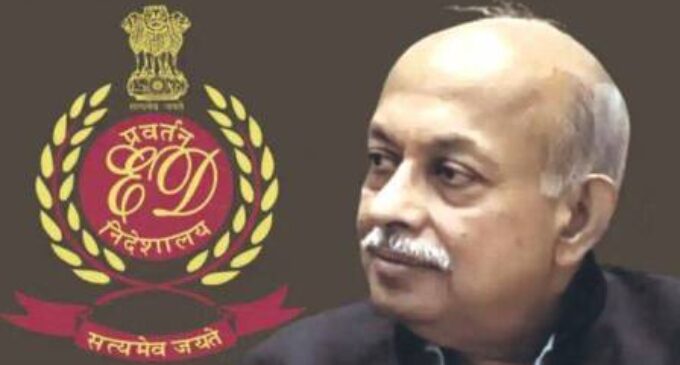Enforcement Directorate chief’s third extension is ‘illegal’, says Supreme Court

NEW DELHI,JULY 11 : The Supreme Court on Tuesday said that the third extension to Sanjay Kumar Mishra’s tenure as the Enforcement Directorate (ED) chief was “illegal” and in violation of its judgment in 2021. The top court, however, permitted him to continue in office until July 31 to allow for a “smooth transfer”.
Mishra, a 1984-batch IRS officer, was to remain in office until November 18, 2023, according to a notification issued by the government.
A bench of Justices BR Gavai, Vikram Nath and Sanjay Karol held that the extension granted to Mishra was contrary to a 2021 judgment by a division bench of the Supreme Court, wherein the court had barred further extensions beyond November 2021.
“In Common Cause judgment, there was a specific mandamus and it was directed that there should be no further extension. Thus, extensions given after verdict was invalid in law,” the Supreme Court said while hearing a batch of petitions challenging the extension his tenure.
Samsung techie shares how his rent in Bengaluru was hiked by Rs 15,000 in 6 months and why agreed to pay it
The court, however, said that Mishra can continue in his post until July 31 in view of the peer review being conducted by the Financial Action Task Force (FATF) this year and and to enable smooth transition.
Significantly, the Supreme Court confirmed the amendments to the Central Vigilance Commission Act, and the Delhi Special Police Establishment Act to extend the tenure of the Director of the Enforcement Directorate for a maximum of five years.
“We find that the legislature is competent, no fundamental rights have been violated, and there is no manifest arbitrariness…extension can be granted to high-level officials such as this in the public interest and with reasons in writing,” the top court said.
Mishra was first appointed as the Director of the Enforcement Directorate for a two-year term in November 2018. This term expired in November 2020. In May 2020, he reached the retirement age of 60.
However, on November 13, 2020, the Central government issued an office order stating that the President had modified the 2018 order to the effect that a time of ‘two years’ was changed to a period of ‘three years.’ This was challenged before the Supreme Court by the NGO Common Cause.
The Supreme Court in a September 2021 verdict approved the modification but ruled against granting more extensions to Mishra.
-PTI






